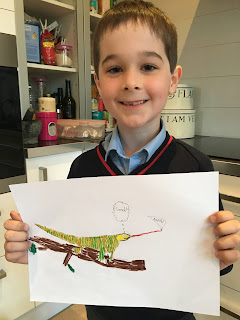I'm about to go on holiday in Cornwall. I should be ramming piles of unread books into bags right now.
We'll be staying in the same cottage on the Roseland Peninsula that we last visited in September 2020 when I was struggling with my WIP and wrote this blog I'd realised that all that 2020 brought us had really messed with my head and powers of concentration. The usual way I had of ramming images and experiences into my brain, pressing go and waiting for stories to come out had malfunctioned. My output was stalled.
I needed to see the creeks and beaches, harbour towns and gorgeous holiday homes that I wanted as settings and hoped that 'seeing' and 'feeling' the book would spur me on. Well, Reader, it must have worked because Ready or Not, came out last month. Teenager Kat goes missing during a game of hide-and-seek at a party on holiday in Cornwall.
So next week, I'm going to sit on the beach and take a moment to reflect that I got through that sticky patch with the book, maybe I'll even treat myself to a celebratory ice cream. If I can do it with that one, I can find a way through with the current WIP. The more books I write, the more I realise that there isn't a magic formula* for how to do this. I can only do my best and not beat myself up.
In that blog, I said I needed cultural top ups to feed the creative part of my brain. I'm sharing some pictures from the things I've done lately to do just that. I no longer take any of these activities for granted. I hope one might spark a story for me, or any of you.
(*If there is a magic formula, please let me have it.)
 |
| Historical time travel adventure set in the Roman Empire (the Newt) |
 |
| A YA set at a busy festival? An author mysteriously murdered in the Kids Lit tent ? (Boney M at Wychwood) |
 |
| How about a cosy crime plot packed with innuendo? (Much Ado About Murder - Heartbreak Productions) |
 |
| What world is beyond the gate? (Corsham Court workshops) |
 |
| A procession of unusual exhibits comes alive? (Tate Britain with a writers' group) |




















